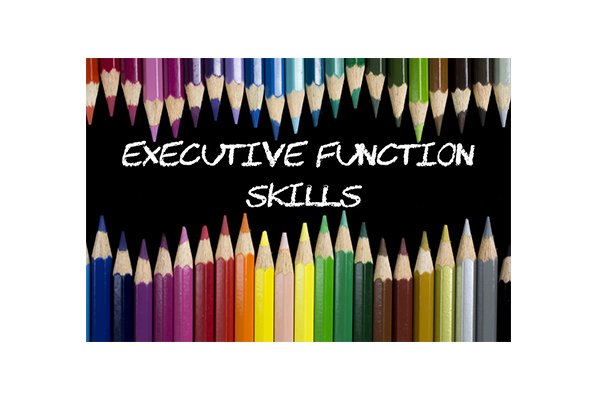Executive functioning is the ability to organize information, focus, remember things, have flexible thinking, and exhibit self-control. Executive function skills are built over time and can take a while to develop. Although some kids struggle with executive function skills more than others (think: kids with ADHD-Attention Deficit Hyperactivity Disorder) ALL children can benefit from practicing these skills.
Here are 11 Tips to Help You Build Your Child’s Executive Function Skills:

To Help with Focus & Organization:
1. Post a Calendar and a Daily Schedule in a Visible Place in Your Home.
Include pictures and drawings for kids who don’t know how to read yet.
2. Try a Reward Chart.
This will act as a visual anchor for your child and (hopefully) motivate him/her to complete the assigned tasks. Get Wise about how to make an effective reward chart here.
3. Use Timers.
Visual timers, like Time Timer, work well for young children. Timers are great because they make the timer the “bad guy” (i.e. the one telling your child that time’s up) instead of you.
To Help Manage Emotions:
1. Play Games That Require Focus and Impulse Control.
Examples include “Freeze Dance,” “Duck, Duck, Goose,” and “Simon Says.”
2. Get Your Child Outside on a Regular Basis to Blow Off Steam.
3. Check Out The Zones of Regulation.
The Zones of Regulation offer a simple way to help your child identify his/her feelings. As your child learns to understand and name his/her emotions, he/she will get better at regulating them.
4. Teach Your Child to Recognize His/Her Triggers and Manage Them.
Observe your child and note the situations and the times of day that are most challenging for him/her. For example, does he/she struggle in the morning when everyone is in a rush? Or when he/she is bored? Or when there’s too much noise?
5. Prioritize Good Sleep and Healthy Eating. Limit your child’s consumption of processed foods and offer him/her high protein meals and complex carbohydrates (think: omelets with cheese and bread with peanut butter).
6. Turn off all Screens 2 Hours Before Bedtime.
Why? Because the blue light given off by screens is activating for many kids and can make it hard for them to get to sleep. Sleep deprivation makes it difficult for anyone to remain even-keel.
7. Work on Social Skills and Manners.
Young children (especially those with ADHD) don’t often know how to regulate their emotions in social situations. As a result, they may get hyper or do something unexpected (such as giggle when they’re supposed to be serious). It helps, therefore, to teach kids social skills and manners (e.g. through role-playing) so they have specific “scripts” to fall back on during their various social encounters. Get Wise about the Top 10 Tips for Teaching Manners to Toddlers.
8. Practice Mindfulness.
Mindfulness exercises (such as meditation, deep breathing practices, and yoga) have been shown to promote emotional regulation in kids (and in their parents, as well). Check out the Headspace App and the Smiling Mind App for kid-friendly mindfulness activities and programs.
The Bottom Line
The tools above can help ALL kids build their executive function skills.





